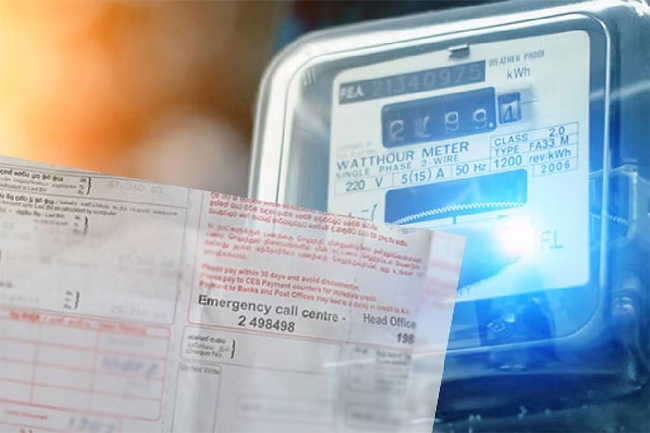By: Staff Writer
June 29, Colombo (LNW): Consumers and investors across Sri Lanka have expressed growing concern over the potential implications of the recently passed Electricity (Amendment) Bill in Parliament.
Critics fear that the restructuring of the electricity sector could lead to privatization, higher tariffs, and reduced regulatory control. Amid this uncertainty, the Ministry of Power and Energy issued an official clarification on June 25, 2025, outlining the key provisions of the Amendment and addressing public apprehensions regarding the bill’s implementation and ownership changes.
According to the Ministry, the Government of Sri Lanka (GoSL) will retain 100% permanent ownership of both the newly established Generation and Distribution Companies as part of the initial transfer plan.
However, these entities will be further “unbundled” under Clauses 13 and 20 of the Bill. Notably, while GoSL’s permanent ownership is assured for the hydropower company, there is no legislative guarantee for full state ownership of the other unbundled entities — a point that has raised concern among stakeholders.
To address fears of re-bundling and lack of transparency, the Ministry emphasized that the new National Transmission and System Planning Company (NTNSP) will remain focused solely on transmission activities.
NTNSP will, however, hold Ceylon Electricity Board’s (CEB) 35% stake in LTL Holdings Ltd. (LTLH) and 100% stake in Sri Lanka Energies Company Ltd. (SLEC) as valued assets, per the planned transfer. These holdings will not affect the NTNSP’s core role, though it may establish subsidiaries for other business interests.
Importantly, LTLH and SLEC—being separate entities—will not disrupt competitive electricity procurement, as all power plant operations will still require Power Purchase Agreements (PPAs) with the National System Operator (NSO), ensuring fair and transparent procurement under Section 11 of the existing Act.
The Ministry also clarified confusion surrounding Clause 20(4), which allows the Distribution Company to assume only the CEB’s 55% stake in Lanka Electricity Company Ltd. (LECO). This is not a full absorption of LECO, but merely a transfer of ownership. Both entities will continue to operate independently and maintain separate corporate identities.
Regarding market dynamics, the Amendment under Clause 18(2) facilitates the development of “Retail Markets,” aiming to provide consumers with more efficient and cost-effective electricity supply options. LECO is expected to benefit from this reform through expanded business opportunities and a broader consumer base.
To ensure tariff fairness, the final proposal—formulated by the Cabinet in consultation with the Ministry of Finance—confirms that tariff setting will remain under the purview of the national energy regulator, in alignment with national tariff policy.
In summary, while the Electricity Amendment Bill marks a significant structural reform in Sri Lanka’s power sector, the government insists it does not pave the way for privatization but rather enhances efficiency, transparency, and consumer choice. However, continued scrutiny from the public and industry observers is expected as implementation progresses.

